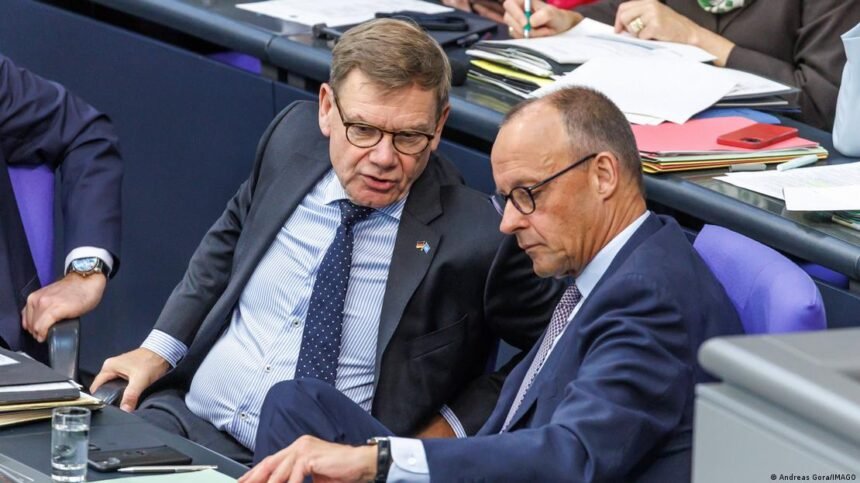German Foreign Minister Johann Wadephul will arrive in Sarajevo on Sunday, November 16, to begin a four-day visit across the Western Balkans, entering a delicate balancing act. Wadephul, who previously led the Western Balkans Group of the CDU/CSU in the Bundestag, travels this time as head of the foreign ministry, with Germany’s policy in the region increasingly perceived as uncertain.
Montenegro: Calls for Clearer German Engagement
From Podgorica, where political talks begin on Monday, Montenegro seeks explicit guidance from Berlin. Biljana Papovic, Minister of Integration, told DW at a DGAP event in Berlin on November 13 that she hopes for “greater engagement from Berlin and clearer signals that the Western Balkans remain a priority for the German government.” Strong German leadership is seen as vital not only for bilateral relations but also for the overall EU accession process.
Albania: Positive Perception, but Challenges Remain
In Tirana, Germany is still viewed positively, though political analyst Alba Cela (AIIS) warns that Berlin’s support is not guaranteed. EU membership support in Albania exceeds 80%, yet according to DGAP expert Milan Nic, the country faces major challenges in key areas such as property rights, regulatory reforms, and environmental issues, with anti-corruption efforts remaining a perennial concern.
Serbia: The Most Sensitive Stop
The most delicate leg of Wadephul’s tour is Belgrade, where support for EU integration is around 38% and Russian influence remains strong. CDU maintains close ties with President Aleksandar Vučić’s party, but Serbia ranks lowest in EU progress reports. Bundestag deputy Boris Mijatovic (Greens), traveling with Wadephul, highlighted electoral irregularities documented by OSCE in the 2023 elections and expects the minister to address these concerns. He also warns of a geopolitical gap left by USAID’s withdrawal from media and democracy programs, potentially increasing Russian influence.
Kosovo and Bosnia: Political Signals Expected
Kosovo, the youngest European state, applied for EU membership three years ago but remains in political crisis. With no functional government eight months after elections, early elections appear inevitable. Political scientist Njomza Arifi hopes Wadephul’s visit will signal encouragement for resolving the stalemate.
In Sarajevo, Wadephul will meet the Bosnian Presidency and the High Representative Christian Schmidt, with Bosnia having applied for EU membership in December 2022.
North Macedonia: Attention Still Needed
North Macedonia, a candidate since 2005, faces ongoing constitutional adjustments for the Bulgarian minority. Mijatovic notes: “We changed the name, but what comes next?” – reflecting persistent uncertainty and waning trust in the EU accession process. Wadephul will meet his counterpart Timco Mucunski in Skopje.
Germany’s Policy: Acceleration or Delay?
Expectations for Wadephul are clear: Berlin must clarify its position. His predecessor, Annalena Baerbock, prioritized Western Balkan integration as a top-three policy goal. Today, according to Mijatovic, competing priorities sometimes push the region off the agenda. The elimination of the Special Envoy for the Western Balkans post, previously held by Manuel Sarrazin, is seen as a negative signal.
DGAP expert Milan Nic concludes that Germany’s policy direction will become clearer in 2026, revealing whether the country will accelerate EU enlargement or allow it to remain secondary to other competing priorities.







